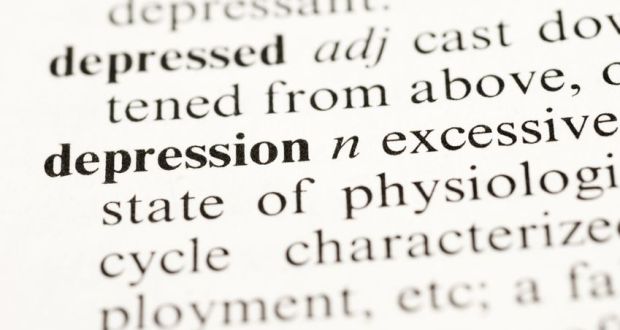If you suspect your moods are caused by depression, here are 5 tips to help you.
You’re sweating bullets. Your forehead is burning hot. Is it the flu, or the fact that you’ve been sunbathing for the better part of an hour? In this scenario, the answer is easy to find: all you need to do is look around. If you’re on a beach, it’s the latter. If you’re in your house with the thermostat in the mid-60’s, it’s much more likely to be the flu. This situation is farcical, but for those of us who experience clinical depression, the situation can seem familiar. We feel a certain way, but because we can justify those feelings, it’s not as easy as looking around to determine whether what we’re experiencing is the result of interior or exterior forces.
Before we begin, please know that this article is not intended to diagnose or treat clinical depression. Only a doctor can do that. This is a guide to help people with depression (and friends who may want to help) differentiate symptoms of depression with otherwise normal feelings that could be caused by depression. To put it another way, we all feel sad, aloof, or otherwise “down” from time to time. For those of us grappling with clinical depression, there’s the added burden of figuring out if we have a reason to feel that way in a given moment, or if we’re finding a reason. If it’s the latter, chances are that it’s depression. To help differentiate, here are some helpful steps we’ve found over the years:
- Keep a Journal, and Go Back Over It
By keeping a journal, you are able to recognize patterns in your feelings. How long have I been feeling this way, or going in this direction? Have I been upset about the same things or different things? Did I feel similarly the last time I was in a similar situation? Answers to these questions can put feelings in perspective and hopefully even help pull us out of them. For example, being late to work last Tuesday sent you into a spiral, but two months ago it didn’t. Recognizing any similarities or differences (e.g. did your boss reprimand you more than last time?) should help to understand your feelings.. Plus, the journal is a great tool to help your mental health professional. Speaking of whom…
- Internalize the Therapist/Psychologist
In our minds, this is the ideal solution, provided you’ve found a good fit in your mental health professional and have been working together for a while. We’d encourage anyone who’s going through these kinds of problems to seek help, but know that’s not always possible. A mental health professional will ask a series of questions or will recognize patterns in your feelings and the reasons behind them. Learning to ask these questions and recognizing the patterns yourself is called “internalizing,” and the best part about it is that it’s tailor-made to you.
- “Press Pause” in a Healthy Way, Then Come Back
Depression can be an oddly fickle beast. Getting away from the feelings for even a little bit can sometimes make them go away longer than you expect. We’ve found that stress naps and jogging work the best. If we’re still upset when waking up or returning home, chances are that it’s a legitimate problem that we need to work on solving. It’s important that you recognize and use what works for you. Once again, a journal can help keep track of what does and doesn’t work.
- Check In with a Trusted Person
We know how hard it can be to reach out, particularly in the midst of a depressive episode. Simply talking about problems – particularly out loud – can be therapeutic; seeing the face of a trusted confidant may help as well. At the end, you can (both) assess how reasonable the feelings seem.
- Figure Out What You Need
After talking with someone, particularly if there’s no agreement or consensus, perhaps try asking for reactions from your partner (or giving them to yourself). Ask for sympathy. Ask for encouragement. Ask for a compliment, even if it’s unrelated to the issue at hand.
If you’re feeling brave, ask for a taste of your own medicine. Hearing a friend say, “You were late to work on Tuesday and you’re a bad person because of it” may make you feel better, even if you have been spending the better part of a week convincing yourself that it’s the truth. It helps put the situation and your feelings into perspective. .
Depression is a tragic condition. It makes us undeservedly upset, worsens bad situations, and has taken too many lives. It can be a daily struggle. We hope these tips can help in that struggle, but if it ever becomes too much for you or someone you know, the Suicide Prevention Hotline is always there to help and can be reached at (1-800-273-8255).
 Natural Knowledge 24/7 Educate yourself with nutrition, health and fitness knowledge.
Natural Knowledge 24/7 Educate yourself with nutrition, health and fitness knowledge.






